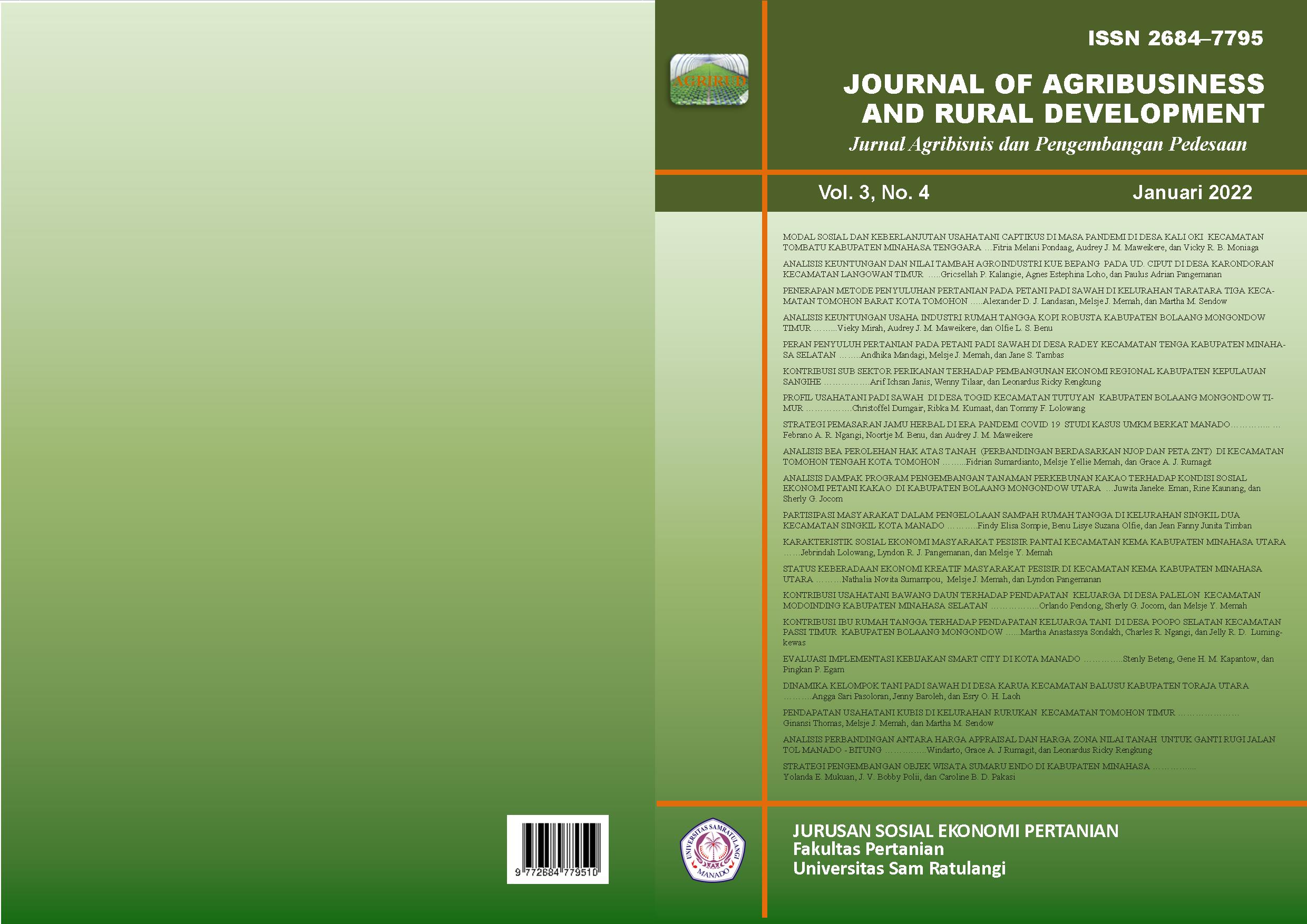MODAL SOSIAL DAN KEBERLANJUTAN USAHATANI CAPTIKUS DI MASA PANDEMI DI DESA KALI OKI KECAMATAN TOMBATU KABUPATEN MINAHASA TENGGARA (Social Capital and Sustainability of Captikus Farming in the Pandemic Period in Kali Oki Village, Tombatu Sub District, Southeast Minahasa Regency)
DOI:
https://doi.org/10.35791/agrirud.v3i4.40013Keywords:
social capital, sustainability, captikus farmingAbstract
The objective of this study is to determine the social capital and sustainability of captikus farming during the pandemic in Kali Oki Village, Tombatu Sub District, Southeast Minahasa Regency. The research was conducted from June to August 2021. The data collected in this study were primary data obtained from direct interviews with captikus farmers using a questionnaire. Secondary data were obtained from the Kali Oki Village Office, as well as data related to research taken from the internet. Sampling was carried out by means of Simple Random Sampling, namely as many as 25 samples.
The research results showed that the social capital and sustainability of Captikus farming during the pandemic in Kali Oki Village, Tombatu Sub District, Southeast Minahasa Regency were categorized as very good. This can be seen from the components of social capital, namely: norms, trust and networks which are categorized as very good, and sustainability components, namely the provision of media, capital, marketing and obtaining information and technology which are categorized as good.
References
Anam, Khoirul., 2013. Identifikasi Modal Sosial Dalam Kelompok Tani dan Implikasinya Terhadap Kesejahteraan Anggota Kelompok Tani (Studi Kasus pada Kelompok Tani Tebu Ali Wafa di Desa Rejoyoso Kecamatan Bantur Kabupaten Malang). Jurnal Ilmiah Universitas Brawijaya, Malang.
Field, Jhon. 2011, ‘’Modal Sosial’’. Yogyakarta: KreasiWacana






